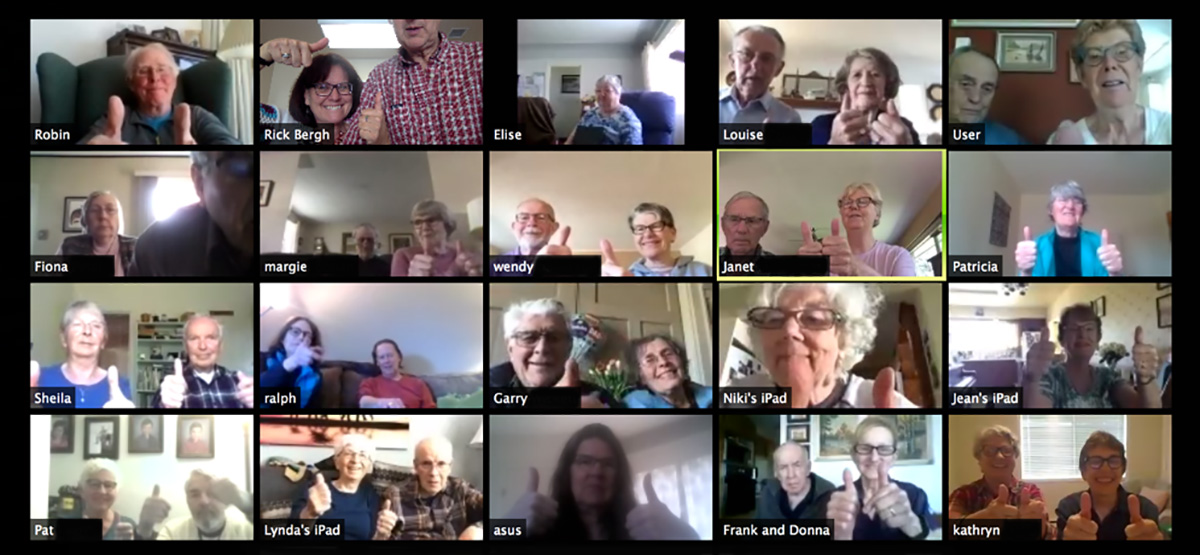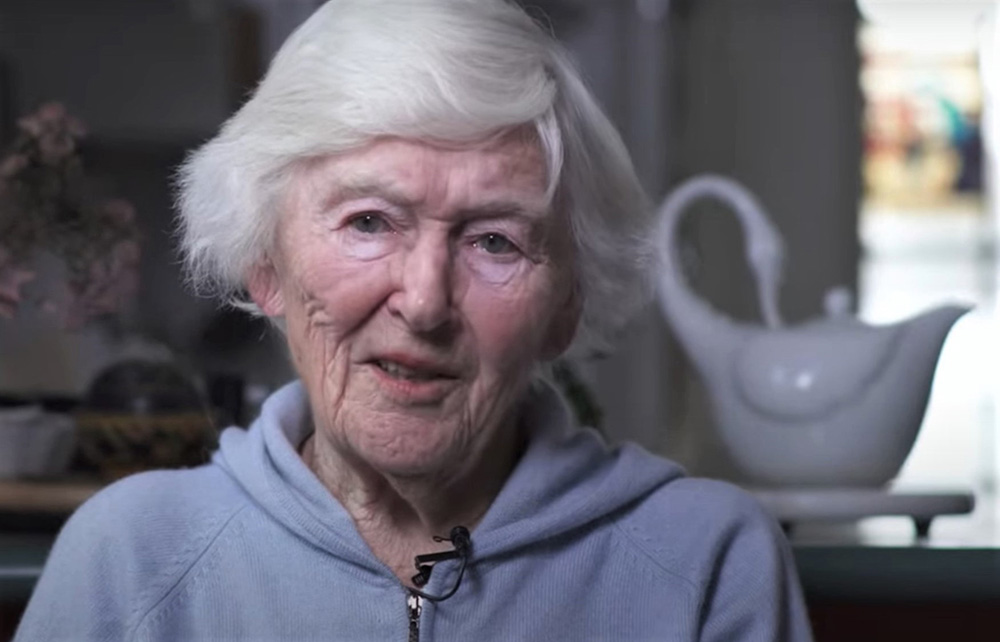With the threat of a deadly illness keeping everyone apart, Canadians, like millions globally, are turning to online music for comfort and connection.
Videos of ordinary people making extraordinary music fly across YouTube, Facebook and Zoom, trailing emoticons of happy faces, hearts and up-turned thumbs.
Music is helping us cope with these difficult times together, even when we must be apart.
Those of us who study the social and health costs of dementia are especially excited to see how quickly creating and sharing music online has become a public lifeline. We already know from research that Canadians with dementia — and there are half a million here, with 25,000 new diagnoses every year — benefit from making music together, as do caregivers. Because COVID-19 has nudged almost everyone and everything online, we see more opportunities to help tens of thousands of Canadians with dementia by adding online singing to our repertoire of supports.
In 2018, we created an intergenerational community choir called Voices in Motion in Victoria, B.C. — a research project for people with dementia and their care partners. By bringing high school students into the choirs, we can start reducing the societal stigma around dementia, one interaction at a time. The project has grown to three choirs, indicating that we need more such programs that celebrate the potential of living well with dementia, as well as helping society itself become more dementia-friendly.
Studies show that the choral experience helps singers with dementia recall details from long-buried memories, increases functioning memory, decreases distress among caregivers, and reduces stigma while increasing empathy across age groups. These are verifiable, non-pharmaceutical benefits.
Each week, a professional choir director leads singers in warm-up exercises for bodies and voices. Then they sing familiar tunes and learn new ones. Afterwards, young and old converse over snacks, hearing each other’s stories. For 90 minutes, people with memory loss are absorbed and engaged with others, contributing equally to the group.

Then along came COVID-19. Choir rehearsals stopped but within a week, the Voices in Motion team began testing online alternatives. We weren’t sure how the singers would take to Zoom, but each week more faces are appearing, so that now over three-quarters of our caregiver-dementia pairs are participating in the virtual choir. They are inviting friends and relatives from around the world to join in — something that could not happen in real life. One new voice is a woman in isolation on the French-Spanish border. When it comes time to leave the online meeting, nobody wants to be the first to say goodbye.
We’ve now added other activities on Zoom aimed at replicating the conversation and swapping of stories that happens naturally when people get together. Choir members are now sharing significant, if sometimes painful, stories about their lives. One couple spoke of losing an adult child to cancer, which they had not mentioned before. One caregiver cried as he described watching the joy in his wife’s face as she sang at rehearsals. “Nobody likes where this journey is going,” said another on Zoom, “but the choir helps along the road.”
Having seen the possibilities, we want to explore the potential and challenges of the online choir experience more widely. Virtual choirs have the potential to connect people in rural and far-flung communities with others to decrease loneliness and social isolation. This is a key benefit, as research shows that the stress of loneliness has greater public health implications than obesity, air pollution or physical inactivity.
It appears that medical science will have a vaccine for the coronavirus, to which seniors are particularly vulnerable, in under two years. But despite many decades of research, effective preventions for dementia — exponentially more fatal to the older population — are nowhere on the horizon. Time is not on their side. But cost-effective social programs like choirs allow people with dementia to live fully now.
This is good news for governments facing unprecedented fiscal pressures in the face of COVID-19. Writing a prescription to sing in a choir does not cost billions. This pandemic helps us see that all levels of government need to support innovative ways to connect those with dementia to others, in person and online. Let’s start with music as the universal, joyful operating system. ![]()
Read more: Health, Coronavirus, Science + Tech

















Tyee Commenting Guidelines
Comments that violate guidelines risk being deleted, and violations may result in a temporary or permanent user ban. Maintain the spirit of good conversation to stay in the discussion.
*Please note The Tyee is not a forum for spreading misinformation about COVID-19, denying its existence or minimizing its risk to public health.
Do:
Do not: